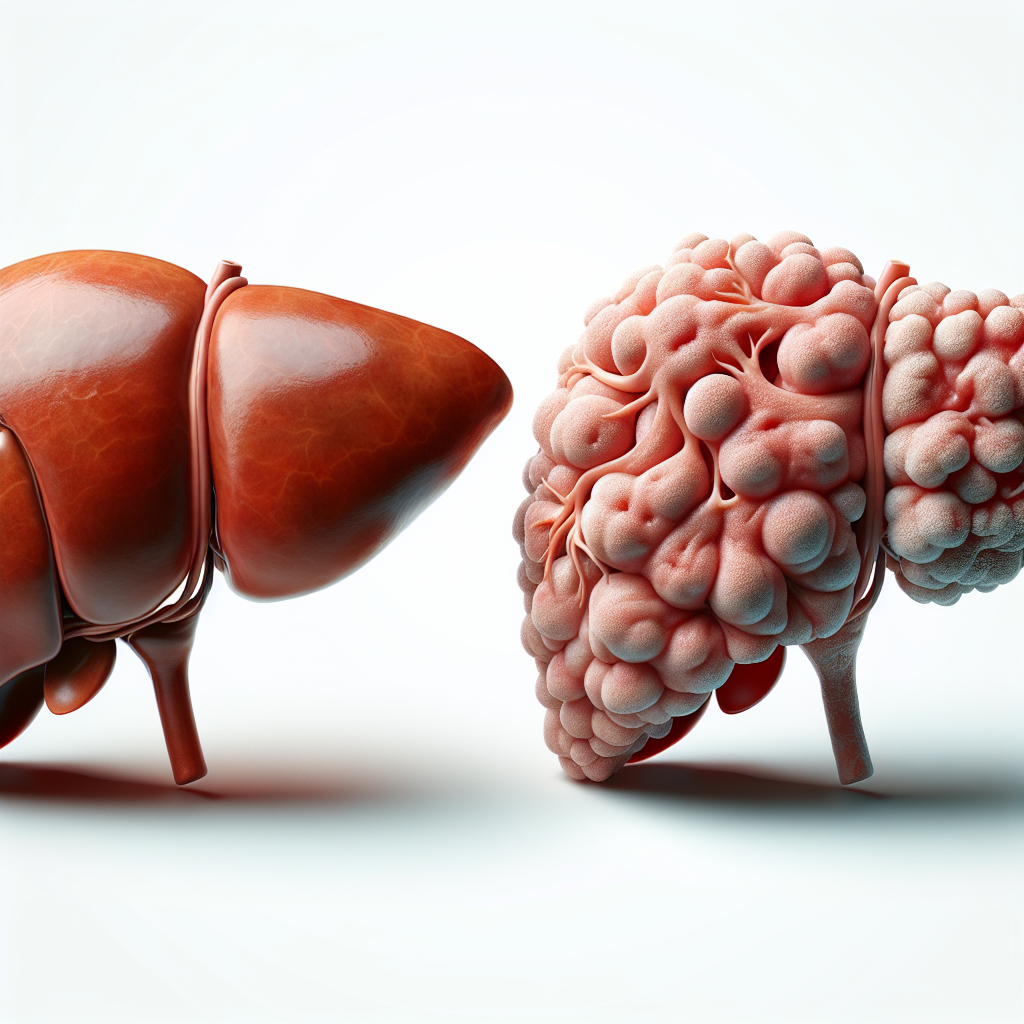Table of Contents
“Empowering Recovery: The Transformative Power of Therapy in Overcoming Cocaine Addiction”
Introduction
The Impact of Therapy on Recovery from Cocaine Addiction
Cocaine addiction remains a pervasive and challenging public health issue, affecting millions of individuals worldwide. The journey to recovery from cocaine addiction is often fraught with numerous obstacles, including intense cravings, psychological dependence, and the risk of relapse. In this context, therapy has emerged as a critical component of comprehensive treatment plans aimed at facilitating long-term recovery. Various therapeutic approaches, such as cognitive-behavioral therapy (CBT), contingency management, and motivational interviewing, have demonstrated significant efficacy in addressing the multifaceted nature of cocaine addiction. These therapies not only help individuals understand and modify their addictive behaviors but also equip them with essential coping strategies to manage triggers and prevent relapse. By fostering a supportive and structured environment, therapy plays a pivotal role in the recovery process, offering individuals the tools and resilience needed to reclaim their lives from the grip of addiction.
The Role of Cognitive Behavioral Therapy in Cocaine Addiction Recovery
Cognitive Behavioral Therapy (CBT) has emerged as a cornerstone in the treatment of cocaine addiction, offering a beacon of hope for those grappling with this debilitating condition. The journey to recovery from cocaine addiction is often fraught with challenges, but CBT provides a structured and evidence-based approach that can significantly enhance the chances of long-term sobriety. By focusing on the interplay between thoughts, emotions, and behaviors, CBT helps individuals understand and alter the patterns that contribute to their addiction.
One of the most compelling aspects of CBT is its emphasis on self-awareness and self-regulation. Individuals undergoing CBT learn to identify the triggers and situations that lead to cocaine use. This heightened awareness is crucial because it allows them to anticipate and manage high-risk scenarios more effectively. For instance, a person might recognize that stress at work or social gatherings where cocaine is present are significant triggers. With this knowledge, they can develop strategies to cope with these situations without resorting to drug use.
Moreover, CBT equips individuals with practical skills to combat cravings and avoid relapse. Techniques such as cognitive restructuring enable them to challenge and change the distorted thinking patterns that often accompany addiction. For example, someone might believe that they need cocaine to socialize or to cope with life’s pressures. Through CBT, they learn to question these beliefs and replace them with healthier, more realistic thoughts. This cognitive shift is instrumental in reducing the psychological grip of addiction.
In addition to cognitive restructuring, behavioral interventions play a pivotal role in CBT. Patients are encouraged to engage in activities that promote well-being and distract from cravings. This might include exercise, hobbies, or spending time with supportive friends and family. By building a repertoire of positive behaviors, individuals can create a fulfilling life that does not revolve around drug use. This behavioral change is not just about avoiding cocaine; it is about constructing a new, healthier lifestyle that supports long-term recovery.
Furthermore, CBT often incorporates elements of mindfulness and stress management, which are invaluable in the context of addiction recovery. Mindfulness techniques help individuals stay present and grounded, reducing the likelihood of impulsive decisions to use cocaine. Stress management strategies, such as deep breathing exercises and progressive muscle relaxation, provide tools to handle the inevitable stresses of life without turning to drugs. These skills are essential for maintaining sobriety, especially in the face of life’s inevitable ups and downs.
The collaborative nature of CBT also fosters a strong therapeutic alliance between the patient and therapist. This relationship is built on trust, empathy, and mutual respect, creating a safe space for individuals to explore their thoughts and feelings. The therapist acts as a guide, helping the patient navigate the complexities of addiction and recovery. This supportive dynamic can be incredibly empowering, instilling a sense of hope and confidence in the individual’s ability to overcome their addiction.
In conclusion, Cognitive Behavioral Therapy offers a comprehensive and effective approach to cocaine addiction recovery. By addressing the cognitive and behavioral aspects of addiction, CBT helps individuals develop the skills and strategies needed to achieve and maintain sobriety. The journey may be challenging, but with the support of CBT, individuals can reclaim their lives and build a future free from the shackles of addiction. The transformative power of CBT lies in its ability to change not just behaviors, but also the underlying thought patterns that drive addiction, paving the way for lasting recovery and a brighter, healthier future.
How Group Therapy Facilitates Healing in Cocaine Addiction
Group therapy has emerged as a cornerstone in the treatment of cocaine addiction, offering a unique blend of support, accountability, and shared experience that can significantly enhance the recovery process. Unlike individual therapy, group therapy provides a communal environment where individuals can connect with others who are facing similar challenges. This collective experience fosters a sense of belonging and reduces the isolation often felt by those struggling with addiction.
One of the most profound benefits of group therapy is the opportunity for participants to share their stories. This act of sharing can be incredibly cathartic, allowing individuals to unburden themselves of their struggles and receive immediate feedback and support from their peers. Hearing others’ experiences can also provide new perspectives and coping strategies, which can be invaluable in the journey toward recovery. The shared experiences within the group create a sense of camaraderie and mutual understanding that is difficult to replicate in other settings.
Moreover, group therapy sessions are typically led by trained professionals who guide discussions and ensure that the environment remains supportive and constructive. These facilitators play a crucial role in helping participants navigate their emotions and develop healthier coping mechanisms. They also introduce evidence-based techniques and exercises designed to address the psychological aspects of addiction, such as cognitive-behavioral strategies that help individuals recognize and change harmful thought patterns.
Another significant advantage of group therapy is the accountability it fosters. Regular attendance and participation in group sessions create a structure that can be particularly beneficial for those in recovery. Knowing that others are counting on their presence can motivate individuals to stay committed to their recovery goals. This sense of accountability extends beyond the therapy sessions, as group members often form bonds that lead to supportive relationships outside of the formal therapy setting. These relationships can provide ongoing encouragement and support, which are critical components of long-term recovery.
In addition to emotional support, group therapy offers practical benefits. Participants can share resources and information about additional support services, such as job training programs, educational opportunities, and other community resources. This exchange of information can empower individuals to take proactive steps toward rebuilding their lives, further reinforcing their commitment to recovery.
Furthermore, group therapy helps to break down the stigma associated with addiction. By participating in a group where addiction is openly discussed and addressed, individuals can begin to see their struggles as part of a broader human experience rather than a personal failing. This shift in perspective can be incredibly liberating and can help reduce feelings of shame and guilt, which are often significant barriers to recovery.
The inspirational aspect of group therapy cannot be overstated. Witnessing the progress of others who are further along in their recovery journey can provide hope and motivation for those who are just beginning. Success stories within the group serve as powerful reminders that recovery is possible and that the hard work and dedication required to overcome addiction are well worth the effort.
In conclusion, group therapy offers a multifaceted approach to healing from cocaine addiction. It provides emotional support, fosters accountability, breaks down stigma, and offers practical resources, all within a communal setting that emphasizes shared experience and mutual understanding. For many individuals, this combination of factors makes group therapy an indispensable component of their recovery journey, offering both the tools and the inspiration needed to reclaim their lives from the grip of addiction.
The Benefits of Family Therapy for Cocaine Addiction Recovery
Family therapy can be a transformative component in the recovery journey from cocaine addiction, offering a unique blend of emotional support and practical strategies that can significantly enhance the healing process. When an individual grapples with cocaine addiction, the repercussions often extend beyond the person struggling with substance use, affecting family dynamics and relationships. Therefore, involving family members in the therapeutic process can be crucial for fostering a supportive environment conducive to recovery.
One of the primary benefits of family therapy is the opportunity it provides for open communication. Addiction often thrives in secrecy and denial, creating barriers between family members. Through guided sessions, family members can express their feelings, concerns, and frustrations in a safe and structured setting. This open dialogue helps to break down walls of misunderstanding and resentment, paving the way for empathy and mutual support. As family members begin to understand the complexities of addiction, they can better support their loved one’s recovery journey.
Moreover, family therapy can help to identify and address dysfunctional patterns that may contribute to the addiction. Often, family dynamics play a significant role in the development and maintenance of substance use disorders. By examining these patterns, therapists can help families to develop healthier ways of interacting and coping with stress. This not only aids the individual in recovery but also strengthens the family unit as a whole. For instance, learning effective communication skills and conflict resolution techniques can reduce the likelihood of relapse and promote long-term recovery.
In addition to improving communication and addressing dysfunctional patterns, family therapy also provides education about addiction. Many family members may not fully understand the nature of cocaine addiction, which can lead to misconceptions and stigma. Through therapy, families can learn about the biological, psychological, and social aspects of addiction, gaining a more comprehensive understanding of what their loved one is experiencing. This knowledge can foster compassion and reduce feelings of blame or guilt, which are often prevalent in families affected by addiction.
Furthermore, family therapy can empower family members to set healthy boundaries and develop a supportive home environment. Addiction can blur the lines between helping and enabling, making it challenging for family members to know how to best support their loved one. Therapists can guide families in establishing boundaries that encourage responsibility and independence while still providing emotional support. This balance is crucial for the individual’s recovery, as it promotes accountability and self-efficacy.
The benefits of family therapy extend beyond the immediate recovery period. By fostering a supportive and understanding family environment, individuals in recovery are more likely to maintain their sobriety in the long term. The skills and insights gained through family therapy can help families navigate future challenges and prevent relapse. Additionally, the strengthened family bonds and improved communication can enhance overall family well-being, contributing to a more positive and resilient family dynamic.
In conclusion, family therapy offers a multitude of benefits for those recovering from cocaine addiction. By promoting open communication, addressing dysfunctional patterns, providing education, and empowering families to set healthy boundaries, family therapy can significantly enhance the recovery process. The supportive environment created through family therapy not only aids in immediate recovery but also fosters long-term sobriety and overall family well-being. As families come together to support their loved one’s journey, they can find hope and healing, transforming the impact of addiction into an opportunity for growth and connection.
Integrating Mindfulness-Based Therapy in Cocaine Addiction Treatment
Integrating mindfulness-based therapy into the treatment of cocaine addiction has shown promising results, offering a holistic approach that addresses both the psychological and physiological aspects of recovery. This therapeutic method emphasizes the importance of being present in the moment, fostering a heightened awareness of thoughts, emotions, and bodily sensations. By cultivating mindfulness, individuals struggling with cocaine addiction can develop a deeper understanding of their triggers and cravings, ultimately empowering them to make healthier choices.
One of the key benefits of mindfulness-based therapy is its ability to reduce stress and anxiety, which are often significant contributors to substance abuse. Through practices such as meditation, deep breathing exercises, and mindful movement, individuals learn to manage their stress levels more effectively. This newfound ability to cope with stress can be particularly beneficial for those in recovery, as it helps to prevent relapse by providing alternative strategies for dealing with difficult emotions.
Moreover, mindfulness-based therapy encourages self-compassion and non-judgmental awareness. Many individuals battling cocaine addiction experience feelings of shame and guilt, which can hinder their recovery process. By fostering a compassionate attitude towards oneself, mindfulness-based therapy helps individuals to accept their past mistakes and focus on their present efforts to change. This shift in perspective can be incredibly empowering, as it allows individuals to break free from the cycle of self-blame and move forward with a renewed sense of purpose.
In addition to its psychological benefits, mindfulness-based therapy also has a positive impact on the brain’s neuroplasticity. Research has shown that regular mindfulness practice can lead to structural changes in the brain, particularly in areas associated with self-regulation and emotional processing. For individuals recovering from cocaine addiction, these changes can enhance their ability to resist cravings and maintain long-term sobriety. By rewiring the brain’s pathways, mindfulness-based therapy offers a sustainable solution for overcoming addiction.
Furthermore, integrating mindfulness-based therapy into cocaine addiction treatment can improve overall well-being and quality of life. As individuals become more attuned to their bodies and minds, they often experience increased levels of happiness and satisfaction. This holistic approach not only addresses the addiction itself but also promotes a healthier, more balanced lifestyle. By focusing on the present moment and cultivating a sense of inner peace, individuals can find joy in everyday activities and build a fulfilling life in recovery.
It is also worth noting that mindfulness-based therapy can be easily integrated with other treatment modalities. For instance, combining mindfulness practices with cognitive-behavioral therapy (CBT) can enhance the effectiveness of both approaches. While CBT helps individuals to identify and change negative thought patterns, mindfulness-based therapy provides the tools to observe these thoughts without judgment. This complementary relationship can lead to more profound and lasting changes in behavior.
In conclusion, the integration of mindfulness-based therapy in cocaine addiction treatment offers a comprehensive and effective approach to recovery. By addressing the psychological, physiological, and emotional aspects of addiction, this therapeutic method empowers individuals to take control of their lives and build a brighter future. Through the practice of mindfulness, individuals can develop the skills necessary to manage stress, cultivate self-compassion, and rewire their brains for long-term sobriety. As a result, they can achieve not only freedom from addiction but also a greater sense of well-being and fulfillment.
Q&A
1. **Question:** How does cognitive-behavioral therapy (CBT) impact recovery from cocaine addiction?
**Answer:** Cognitive-behavioral therapy (CBT) helps individuals identify and change negative thought patterns and behaviors associated with cocaine use, improving coping strategies and reducing relapse rates.
2. **Question:** What role does contingency management play in the treatment of cocaine addiction?
**Answer:** Contingency management provides tangible rewards for positive behaviors, such as maintaining sobriety, which reinforces abstinence and increases treatment retention.
3. **Question:** How effective is group therapy in supporting recovery from cocaine addiction?
**Answer:** Group therapy offers peer support, shared experiences, and a sense of community, which can enhance motivation, reduce feelings of isolation, and improve long-term recovery outcomes.
4. **Question:** What is the impact of family therapy on individuals recovering from cocaine addiction?
**Answer:** Family therapy addresses dysfunctional family dynamics, improves communication, and strengthens family support systems, which can significantly enhance the recovery process and reduce the likelihood of relapse.
Conclusion
Therapy plays a crucial role in the recovery from cocaine addiction by addressing the psychological and behavioral aspects of the disorder. Various therapeutic approaches, such as cognitive-behavioral therapy (CBT), contingency management, and motivational interviewing, have been shown to be effective in reducing cocaine use and preventing relapse. These therapies help individuals develop coping strategies, enhance motivation for change, and build a support system, which are essential for long-term recovery. Additionally, therapy can address co-occurring mental health issues, thereby improving overall well-being and increasing the likelihood of sustained abstinence. In conclusion, therapy is a vital component of comprehensive treatment plans for cocaine addiction, significantly contributing to successful recovery outcomes.



